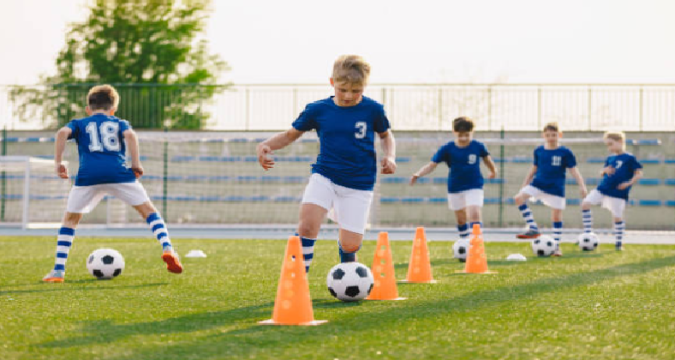
A professional athlete is someone who has worked tirelessly for many years to achieve the pinnacle of athletic achievement. While natural talent is an essential component, it is far from the only requirement. Aspiring professional athletes must develop a wide array of skills and traits that go beyond physical prowess. These include technical abilities, mental toughness, tactical understanding, personal discipline, and the ability to adapt and learn continuously. This article explores the essential skills and traits that aspiring professional athletes need to succeed.
Physical Skills
Strength and Endurance
Physical strength and endurance are fundamental to any sport. Strength training helps athletes build the muscle power necessary for explosive movements and physical resilience. This includes lifting weights, resistance training, and bodyweight exercises. Endurance, on the other hand, ensures that athletes can maintain their performance levels throughout the duration of their competition. This is achieved through cardiovascular exercises such as running, swimming, and cycling, which improve heart and lung capacity.
Speed and Agility
Speed and agility are crucial for many sports, enabling athletes to react quickly, change direction swiftly, and outmaneuver opponents. Speed training involves sprints, interval training, and plyometrics, while agility training focuses on quick footwork, coordination, and reflexes. These skills are particularly important in sports like soccer, basketball, and tennis, where rapid movements can make the difference between winning and losing.
Flexibility and Coordination
Coordination, the ability to use different parts of the body smoothly and efficiently, is equally important. Drills that enhance hand-eye coordination, balance, and timing are vital for sports like gymnastics, baseball, and martial arts.
Technical Skills
Mastery of Fundamentals
Every sport has its fundamental techniques, whether it’s shooting in basketball, passing in soccer, or serving in tennis. Mastery of these basics is crucial for any aspiring professional athlete. This involves consistent practice, often under the supervision of experienced coaches, to refine these skills to a high level of proficiency.
Sport-Specific Techniques
Beyond the fundamentals, each sport has its specialized techniques. For instance, a football quarterback must perfect their throwing mechanics, while a sprinter must optimize their starting technique. Developing these sport-specific skills requires targeted training and a deep understanding of the sport’s demands.
Mental Traits
Resilience and Determination
It involves maintaining a positive attitude and being able to bounce back stronger. Determination, on the other hand, is the drive to persevere through tough training sessions, competitions, and the ups and downs of an athletic career. Together, resilience and determination are what keep athletes pushing forward when faced with obstacles.
Focus and Concentration
Focus and concentration are critical for peak performance. Athletes must be able to maintain their concentration during high-pressure moments and avoid distractions. Techniques such as mindfulness, meditation, and visualization can help athletes enhance their focus and maintain mental clarity during competitions.
Confidence and Composure
Confidence in one’s abilities is essential for success. This confidence comes from preparation, practice, and past successes. Maintaining composure under pressure is also crucial. Athletes must be able to stay calm and make quick, strategic decisions during critical moments. Developing these traits involves mental training, such as cognitive behavioral strategies and stress management techniques.
Tactical Understanding
Game Intelligence
Understanding the tactics and strategies of a sport is vital for any aspiring professional athlete. This includes knowing how to read the game, anticipate opponents’ moves, and make quick decisions. Game intelligence is developed through studying the sport, watching game footage, and learning from experienced coaches.
Adaptability
This could involve changing the game plan in response to an opponent’s strategy or adapting to different weather conditions. Athletes who can think on their feet and adapt quickly have a significant advantage.
Personal Discipline
Time Management
Balancing training, competitions, personal life, and sometimes academic responsibilities requires excellent time management skills. Aspiring professional athletes must learn to prioritize their commitments and make the most of their time. This involves creating schedules, setting goals, and maintaining a disciplined approach to their daily routines.
Commitment and Sacrifice
Achieving success in professional sports often requires significant personal sacrifices. This might include spending long hours training, adhering to strict diets, and sometimes missing out on social activities. Athletes must be committed to their goals and willing to make these sacrifices to reach the highest levels of their sport.
Healthy Lifestyle Choices
Maintaining a healthy lifestyle is critical for sustained athletic performance. This includes following a balanced diet rich in nutrients, getting adequate sleep, and avoiding harmful substances. Nutrition plays a crucial role in an athlete’s performance and recovery, while proper rest is essential for muscle repair and mental well-being.
Continuous Learning and Improvement
Feedback and Coaching
Listening to feedback from coaches and mentors is vital for improvement. Coaches provide the technical expertise and strategic insights that help athletes refine their skills and strategies. Being open to constructive criticism and using it to improve is a hallmark of successful athletes.
Self-Reflection and Goal Setting
Self-reflection involves regularly assessing one’s performance, identifying strengths and weaknesses, and setting realistic goals for improvement. Athletes who regularly reflect on their progress and set specific, measurable, achievable, relevant, and time-bound (SMART) goals are more likely to achieve sustained success.
Embracing New Technologies and Methods
Athletes who stay informed about the latest advancements and incorporate them into their training regimens can gain a competitive edge. This includes using performance analytics, adopting new training equipment, and following the latest sports science research.
The journey to becoming a professional athlete is challenging and requires more than just natural talent. Aspiring athletes must develop a comprehensive set of skills and traits, including physical strength, technical proficiency, mental toughness, tactical understanding, personal discipline, and a commitment to continuous learning. By honing these essential skills and traits, athletes can maximize their potential and increase their chances of achieving success at the highest levels of their sport. The path is demanding, but the rewards of reaching professional athletic excellence are unparalleled, offering a sense of personal achievement and the opportunity to inspire others through their dedication and performance.